December 9, 2019
2019-2020 Magnuson Scholar Updates
On behalf of the University of Washington six Health Sciences Schools and the Magnuson Scholar Program, I am pleased to announce the 2019 – 2020 Magnuson Scholars. Each scholar was nominated by their respective Health Sciences School on the basis of outstanding academic performance and potential contributions to research in the health sciences. We appreciate your support of these scholars and our efforts to fully recognize their achievements while acknowledging Warren G. Magnuson’s extraordinary public service career.
David M. Anderson, DVM
Executive Director
Health Sciences Administration
The 2018-2019 Magnuson Scholars are:
Laquita Grissett
School of Dentistry
Ai Phuong Tong
School of Medicine
Alexi Vasbinder
School of Nursing
Lauren Strand
School of Pharmacy
Joseph Dempsey
School of Public Health
Youngjun Choi
School of Social Work
Scholar Profiles
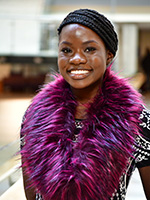 Laquita Grissett
Laquita Grissett
School of Dentistry
First and foremost, I would like to extend thanks to Senator Warren G. Magnuson, his family, and the promising legacy he has left behind. I am incredibly grateful and blessed to be a 2019-2020 recipient of the Magnuson Scholarship.
Since receiving the scholarship, I have made tremendous strides in my doctoral work. I study epithelial carcinogenesis in patients with a genetic disorder known as Fanconi anemia. Patients with this rare genetic disorder are prone to developing cancer of the epithelial tissues of the head and neck region. The goal of my project is to identify a mechanism that explains why these patients are prone to head and neck cancer. My findings will be novel and a vital contribution to the field.
In addition to the research progress that I have made, the Magnuson Scholarship has given me the chance to attend conferences and engage in professional development opportunities. I am full of gratitude for the honor of being selected as a Magnuson Scholar. Thank you.
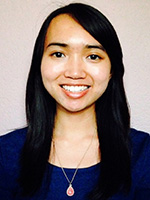 Ai Phuong Tong
Ai Phuong Tong
School of Medicine
I want to sincerely thank the Magnuson family for their continued support of scholars like me. The award has allowed me to focus on my research in the Neurological Surgery department and also begin collaborations with the Radiology department at the University of Washington. By working with neuroradiologists to study images of white matter tracts in the brain, we are able to postulate new mechanisms that support how brain cells communicate in health and disease. Importantly, we are using neuroimaging to reveal pathological processes in disorders associated with altered brain connections such as epilepsy. Thus, the support from this award is allowing me to help move forward research on how the brain processes information and also on how neurological surgeons can better target regions of the brain that are responsible for propagation of seizures.
Nearly half-way into my dedicated research year, my work with neurological surgeons and neuroradiologists so far has culminated in an invited poster that we recently presented at the Radiological Society of North America Annual Meeting. Preliminary findings from our investigations suggest that we can use machine learning algorithms to predict outcomes from ablative therapy for treatment-resistant epilepsy based on specific white matter tracts. Moving forward, we will combine various machine learning algorithms to develop a model that will allow clinicians to input new clinical and imaging data to better predict outcome from surgery for epilepsy. The computational techniques developed from this project may also help inform how we target other disorders such as Parkinson’s disease, chronic pain, as well as mental health disorders. It is my hope that the Magnuson family can continue to support scholars for many years to come so that aspiring investigators like me may contribute to biomedical research.
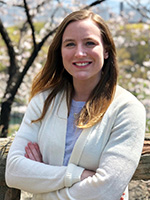 Alexi Vasbinder
Alexi Vasbinder
School of Nursing
I am truly grateful to have been selected as a Magnuson Scholar! The support from this scholarship has allowed me to focus intensively on my research, attend scientific meetings, develop collaborations with multiple investigators, and support my dissertation focused on identifying biomarkers of radiation-induced fatigue and cardiovascular disease in breast cancer survivors. As a result of this award, I have been able to expand my dissertation proposal aims to include exploration of additional biological pathways that are likely associated with my research outcomes. Furthermore, I will be able to incorporate more rigorous approaches and biomarker measures, which will greatly enhance the quality of data collected for my dissertation.
The Magnuson Scholarship has also provided the time for me to work on additional research projects in cancer survivorship and cardio-oncology to promote my skills to become an independent researcher. Since receiving this award, I have submitted two manuscripts for publication as first-author and am currently working with other investigators on two manuscripts as a co-author. I am truly thankful to the Magnuson family, the School of Nursing, my mentor Dr. Kerryn Reding, and my family and colleagues for their incredible support as a I begin collecting data for my dissertation. I am excited for this next phase in my doctoral studies!
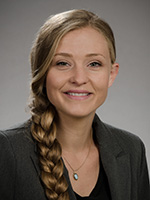 Lauren Strand
Lauren Strand
School of Pharmacy
Since becoming a Magnuson Scholar, I have made progress by successfully defending my long proposal in my General Exam. In addition, I have been working through early phases of data aggregation and analysis for my second dissertation aim which evaluates a relationship between recreational cannabis and opioid dispensing in Washington State. This work aims to inform policy and is timely in light of the growing enthusiasm around cannabis policy as a response to the opioid epidemic. Recently, I have been incorporating geospatial methods into this analysis, and I am grateful for the Magnuson Scholarship support to advance my training in this area. In the near future, support from the Magnuson Scholarship will allow me to travel to disseminate and discuss my work with others in the substance use policy field.
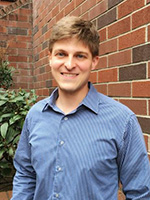 Joseph Dempsey
Joseph Dempsey
School of Public Health
I am incredibly honored and grateful to be a 2019-2020 Magnuson Scholar. The award provides an environment to focus on completing my research and for sharing the results at conferences, putting me in a position to graduate this spring. These opportunities have allowed me to explore the environmental health and toxicology community to continue my learning experience. My dissertation is focused on understanding how the gut microbiome interacts with the host liver during development and how exposure to toxic environmental chemicals may negatively impact this interaction to increase the risk of diseases in adults. Currently, I am working on integrating multiple high-throughput datasets to explain the persistent effects of chemicals on the gut microbiome and liver.
Since receiving the Magnuson Scholarship, I have published manuscripts reviewing the impact of bacteria on the nervous system and how bacteria influence the host metabolism from exposures to toxic chemicals. I was also able to travel to several research conferences to discuss my dissertation research. This included presenting how a formerly used flame retardant altered the developmental trajectory of the gut microbiome and may have changed the liver’s capacity to metabolize future toxic chemical exposures at the Gordon Research Conference for Cellular and Molecular Mechanisms of Toxicity where I received two Best Graduate Student Poster award by the conference organizers and from the Endocrine Society. The support of the Magnuson Scholarship has allowed me to and build a network of other scientists to continue pursuing a career as a public health researcher.
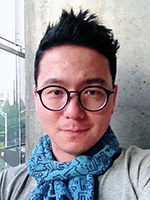 Youngjun Choi
Youngjun Choi
School of Social Work
I am so grateful for the support of the Magnuson Scholarship! The scholarship was particularly critical for my summer quarter research projects. I have analyzed longitudinal data from the Health and Retirement Study (HRS) and the HRS released the most recent data from their 2016 survey in July, which I wanted to analyze in addition to my past work. If I had to work for my living expensed during the summer, I could not imagine I was able to have time to clean, recode, and merge the newest data to my existing ones. Thanks to Magnuson scholarship, I could deal with all the important process and now expect to complete my projects with the fresh implications from the latest data. From the summer work, I have founded; there were certain Internet access gaps among older adults by socioeconomic status; negative perception of aging could hinder older adults’ use of Internet; Internet using older adult group were less likely to show mild cognitive impairment, compared to the non-users.
In addition, thanks to this financial support, I have been able to register for my doctoral dissertation credits during the 2019 summer quarter and get quality feedback from faculty members I wanted to seek insight for my research. In result, my abstract from the summer work has been approved for 2020 the Society and Social Work Research’s annual conference. I will use this chance to seek advice from other scholars as well as expand my academic network. The Magnuson Scholarship also will cover major travelling expenses for the conference presentations. Thank you so much for this prestigious opportunity!